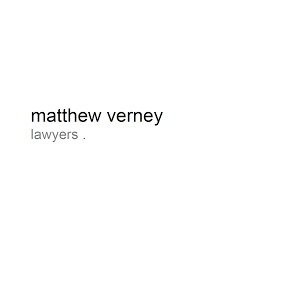Best Landlord & Tenant Lawyers in Devonport
Share your needs with us, get contacted by law firms.
Free. Takes 2 min.
Free Guide to Hiring a Real Estate Lawyer
List of the best lawyers in Devonport, Australia
About Landlord & Tenant Law in Devonport, Australia
Landlord and Tenant Law in Devonport, Australia falls under the broader domain of property law. This legal framework governs the rights, roles and responsibilities of both parties involved in a rental agreement. From offering protection against discrimination in rental accommodation to ensuring the right to peaceful and reasonable use of the property, this law covers a broad range of issues. It's a balanced legal dynamic that seeks to respect and protect the rights of both the landlord and the tenant, ensuring a just and fair rental market.
Why You May Need a Lawyer
In many cases, you may find yourself in need of legal counsel. If you're a landlord, you might need a lawyer to help you navigate the complexities of property management, like preparing lease agreements, dealing with problematic tenants, or evictions. As a tenant, you might require legal help to address issues such as unlawful eviction, unreasonable rent increases, or if your landlord fails to fulfill their contractual obligations like providing timely repairs or maintenance. A lawyer can greatly assist in these circumstances, ensuring your rights and interests are appropriately represented and protected.
Local Laws Overview
Devonport’s lease laws are fundamentally designed to provide a safe, fair, and balanced system for renting in Tasmania. Some key aspects of these local laws include the Residential Tenancy Act 1997, which covers the rights and responsibilities of landlords and tenants. The Act stipulates topics like security deposits, rent increases, repairs and maintenance, access by the landlord, and eviction procedures. Moreover, as discrimination is prohibited by the Anti-Discrimination Act 1998, all dealings between landlords and tenants should adhere to these provisions.
Frequently Asked Questions
What protection does a tenant have against eviction?
Law in Devonport requires landlords to provide written notices of eviction to tenants. A valid reason such as rent arrears, property damage or end of lease period must also be given. Illegal evictions can lead to penalties for the landlords.
Can a landlord increase the rent anytime?
No, Devonport's law requires landlords to give a 60 day written notice for any proposed rent increases. It's important to note that rent can't be raised within the first 6 months of the lease term.
What if a landlord fails to maintain the property?
If a landlord does not carry out urgent repairs after being notified, tenants may arrange the repairs up to a certain value and deduct it from the rent. However, legal counsel is advised before taking such steps as there are conditions to be met.
Do landlords need to give notice before entering the property?
Absolutely. As per the law, landlords or agents need to provide at least 24 hours’ written notice before accessing the property.
Who is responsible for paying rates and taxes on the rental property?
Responsibility for payment of rates and taxes on rental property lies with the landlord unless explicitly mentioned in the lease agreement.
Additional Resources
For any further information, tenants and landlords can refer to the Residential Tenancy Act 1997 Tasmania, or consult Consumer Affairs and Fair Trading Tasmania. These resources provide reliable and comprehensive information related to landlord and tenant law in Devonport, Australia.
Next Steps
If you are confronting a property rental issue in Devonport, it is recommended that you consult a legal professional. Look up a reputed law firm dealing in property law or find a specialist lawyer in the landlord and tenant domain. When dealing with such issues, it is always advisable to keep relevant documents such as the rental agreement, receipts, and any written communications on hand to aid your case.
Lawzana helps you find the best lawyers and law firms in Devonport through a curated and pre-screened list of qualified legal professionals. Our platform offers rankings and detailed profiles of attorneys and law firms, allowing you to compare based on practice areas, including Landlord & Tenant, experience, and client feedback.
Each profile includes a description of the firm's areas of practice, client reviews, team members and partners, year of establishment, spoken languages, office locations, contact information, social media presence, and any published articles or resources. Most firms on our platform speak English and are experienced in both local and international legal matters.
Get a quote from top-rated law firms in Devonport, Australia — quickly, securely, and without unnecessary hassle.
Disclaimer:
The information provided on this page is for general informational purposes only and does not constitute legal advice. While we strive to ensure the accuracy and relevance of the content, legal information may change over time, and interpretations of the law can vary. You should always consult with a qualified legal professional for advice specific to your situation.
We disclaim all liability for actions taken or not taken based on the content of this page. If you believe any information is incorrect or outdated, please contact us, and we will review and update it where appropriate.








